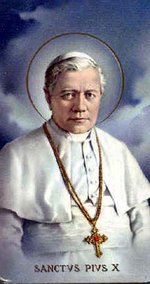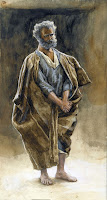
In the 17th century onwards Italy and its Provinces became a cesspool of insurrection and internal bickering as the quest for power took hold of many powerful families and politicians within Italy.
Including a young man named Giuseppe Garibaldi who with the help of his friend Giuseppe Mazzini tried to start a revolution. After its failure and upon sentence of death both men fled Italy and lived in exile. Garibaldi went on to take his revolutionary zeal to other lands whilst Mazzini plotted in the relative safety of London for the downfall of the power structure in Italy.
In order to try and bring some stability to the warring factions which were tearing the country apart, many Italians supported two idea's of a new governing body. Some supported the idea of installing the reigning Pope as Head of all Italy, whilst others preferred a Monarch who would unite the warring factions.
But an uprising in Sicily has both Mazzini and Garibaldi making a quick return to Italy to bolster their revolutionary ideals for an Italian Republic. They were helped in that many neighbouring countries were also at war with each other, so few countries felt inclined to help Italy and its internal infighting.
Even the Pope was not spared from the insurrection as he fled to Gaeta as the different factions fought it out. A Republic was proclaimed in 1849, and both Mazzini and Garibaldi were key players in this revolution. But it was not to be, as Pope Pius IX requests the help of the French forces and they defeated the Republican movement within Italy for a time.
But it is in 1835 that Italy would produce one of its greatest sons, who would also become a 'Pope for the people'.
Though the birth of Giuseppe Sarto was certainly humble enough, his parents were of humble stock, his father, Giambattista Sarto worked as a postman, shoemaker and janitor and his mother Margarita, worked as a seamstress as both parents tried to provide the best for their children.
From an early age Giuseppe showed a strong talent for learning and a hunger to utilize the Gifts that he had been given. Despite his impoverished circumstances, Giuseppe did not let this deter him for he was very strong willed. It was also during this period that Giuseppe would show a strong love for his Faith and his longing to be a Priest.
He was taught Latin by his village Priest, before continuing his studies at Castelfranco. Through heat and driving rain nothing would stop Giuseppe from achieving his dream as he continued to walk to school daily.
Through his intellectual curiously, he earned a Scholarship at the Diocese seminary in Padua in 1850. This was a great achievement for the young Giuseppe but he allowed none of it to interfere with his love of God and his great common sense, which kept his feet firmly on the ground. Sadly though Giuseppe's father died in 1852, this left his mother to support the rest of her family alone.
Giuseppe's dream came true in 1858 when he was ordained a Priest, and though his mother struggled to support herself she was very proud of her son and helped him as much as she could.
Father Giuseppe worked as a parish Priest for nine years in the region of Tombolo, and though he was a good shepherd to his people Fr. Giuseppe also continued his studies in theology, despite his heavy workload on behalf of his parish.
But even though Fr Giuseppe worked hard and studied much he never lost sight of his roots and he endeavoured as much as he could to alleviate the suffering of the poor by providing education and everyday needs to the people in order for them not only to survive but to rise above their origins. For Giuseppe was proof that no matter how humble one is born their is opportunity for all if they work hard enough.
Father Giuseppe understood the poor, and with his enormous energy and generosity he never patronised those born into poverty but instead he gave them the dignity that all men deserve irrespective of their financial troubles. As arch Priest for the area of Salzano Father Giuseppe helped to keep the hospital there functioning in order to provide health care for the poor in the area, as well as providing education for instruction of the Faith.
From the very beginning Giuseppe had a great love for people, and was able to connect with them on a one to one basis making all he met feel important. This did not spring from 'charm' but from a deep love and reverence for God's children both rich and poor equally.
In 1884 Father Giuseppe was named Bishop of Mantua, he was for many years to teach theology to the seminarians. He particularly was drawn to the works of St. Thomas Aquinas and in order to help his seminarians he was known to give away free copies of St. Thomas work the 'Summa Theologica'.
And in 1893 Pope Leo XIII would create Father Giuseppe a Cardinal, this was a great honour and his Mother Margarita was especially proud of this son of hers, but saddened that his father had not lived to see this auspicious occasion.
But even though Italy would struggle with political turmoils this did not disturb Cardinal Sarto from keeping his tremendous intellect from grasping one of the bigger issues that would confront the Church all through its history, the theory of rationalism and the rise of socialism.
Greatness was to touch this humble son of Italy and in 1903 Cardinal Sarto was elected Pope and took the name Pope Pius X, and chose as his motto, "Restore all things to Christ".
Pope Pius X would put his stamp on his Papacy very early on by encouraging children upon reaching the age of reason to be able to partake of the Eucharist. He also held a Eucharistic Congress in 1905 in Rome and encouraged sacred music most especially Gregorian chants to further give praise and Glory to God.
The Pope was a man of the people but he was also to be a great son of the Church in that he fostered correct Liturgical practices and believed strongly in discipline to the Magisterium, rather than secular independence that many priests longed for.
Through all his Pontificate Pope Pius X would be a great denouncer of all things secular including the subtle appearance of modernism, which he saw as a great threat to the Church.
Pope Pius X would eventually write an Encyclical titled, "
Pascendi" which condemns the heresy that is modernism, as the Pope says,
"We allude, Venerable Brethren, to many who belong to the Catholic laity, nay, and this is far more lamentable, to the ranks of the priesthood itself, who, feigning a love for the Church, lacking the firm protection of philosophy and theology, nay more, thoroughly imbued with the poisonous doctrines taught by the enemies of the Church, and lost to all sense of modesty, vaunt themselves as reformers of the Church; and, forming more boldly into line of attack, assail all that is most sacred in the work of Christ, not sparing even the person of the Divine Redeemer, whom, with sacrilegious daring, they reduce to a simple, mere man."
And he then followed this encyclical with a decree titled 'Lamentabilis', for the Pope was determined to rid the Church of this great menace. He also instructed an oath from every Priest against this heresy which is modernism!
Pope Pius X will be remembered in history as the voice against the modernist incursion which tried to infiltrate the Church at that time. But also as the Pope who expounded the need for daily Eucharist and encouraged the Faithful to partake of the Eucharist frequently.
But though Pope Pius X was a mountain when it came to all things Liturgical still he could not prevent the outbreak of war which he could sense would bring untold misery to millions. And though this great man of peace worked hard to prevent it, war turned out to be inevitable, and this would bring a great feeling of foreboding to the Pope.
The Pope did not live to see the devastation which would bring untold misery and death to many, which may have been a blessing to this Pope of Peace.
Pope Pius X died in 1914.
St. Pius X was canonised in 1954 by Pope Pius XII.
Some Quotes
"Let us be leaders; but not of the worldly type, who accomplish by forcing, urging and driving to get things done; rather leaders who lead as Christ did: "Come, follow me!"
"I accept with sincere belief the doctrine of faith as handed down to us from the Apostles by the orthodox Fathers, always in the same sense and with the same interpretation."
"Holy Communion is the shortest and safest way to heaven."
"This is the last affliction the Lord will visit on me. I would gladly give my life to save my poor children from this ghastly scourge."(In reference to the outbreak of World War I)
Let us remember the spirit of St. Pius X to unite the Church and not allow it to combust within. So may we always remain loyal to the Holy See and our reigning Pontiff.
Peace of Christ to ALL
Copyright © 2005 Marie Smith. All rights reserved.





